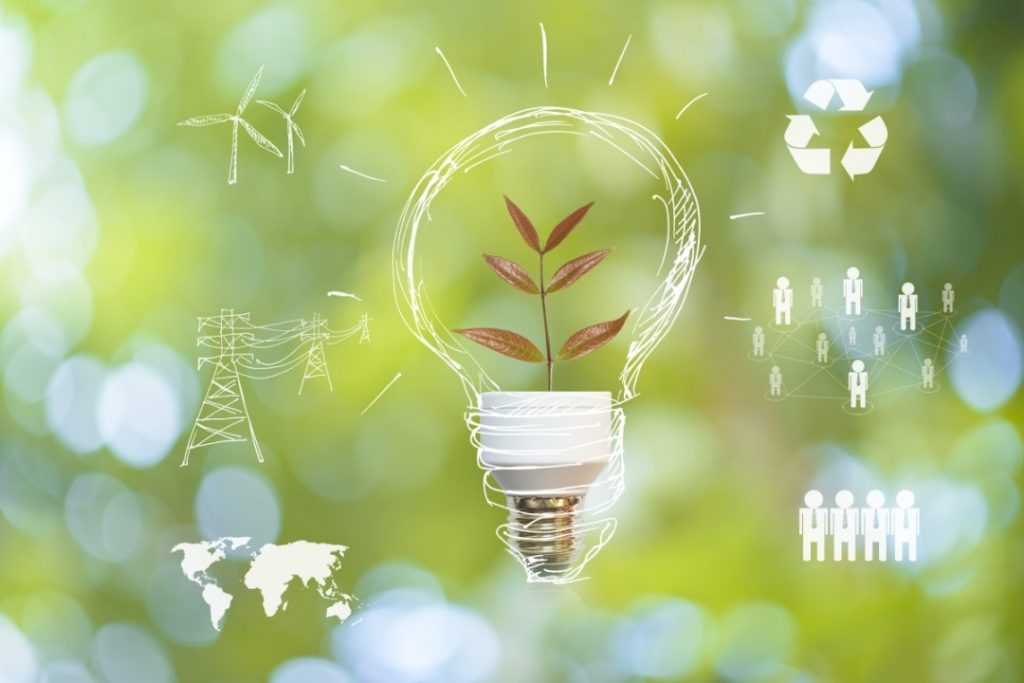General
Chamber Hails EU Proposal to Label Natural Gas as Green Energy

By Adedapo Adesanya
The African Energy Chamber has hailed the European Union’s landmark proposal to label natural gas as a green energy source.
The group noted that the proposal will help advance Africa’s call for a just and inclusive energy transition.
Recognizing the effects of climate change, the continent industrialize itself first so it can have the same opportunities as Europe and other western countries.
“The point that natural gas serves as a transitional energy source is one that has been promoted by African nations for a long time and therefore, the African Energy Chamber hails the EU’s proposal as a landmark development that justifies a positive outlook for an inclusive energy transition.
“It has taken a crisis in energy availability to bring about policies that could increase Africa’s energy supply. The current pressure from The West to acclimatize to cleaner energy systems has so far been exclusive in recognizing that the transition may differ in form and timing from one region to another.
“By restricting investment into energy sources, such as gas, Africa has stood the chance of being left behind during the energy transition, which is counterproductive and regressive,” the group stated.
Speaking on this, Mr NJ Ayuk, Executive Chairman of the African Energy Chamber noted, “We have had our disagreements with our European friends, however, there has always been constructive, behind-the-scenes dialogue with European policymakers. They listened, worked, and let us make the case for Africa’s low-carbon LNG and these discussions have been critical in getting us to see eye-to-eye on gas, a lot of work still needs to be done to make this a reality.
“The demonization of Africa’s gas industry needs to stop, and investments need to come into the sector. While we continue this engagement, it is important that the oil and gas industry focuses its investment on further reducing carbon emissions within the gas value chain.
“Sustainable development and making energy poverty history will require Africa to increase gas within its energy mix, which will give us a fighting chance to reduce the continent’s carbon footprint, even when we are still under 4 per cent of global emissions.”
The Chamber put forth that Africa faces unique challenges and must be allowed to time its own energy transition according to its own needs, adding that the proposal to label natural gas as green energy is what a just energy transition looks like, and now, we need to finance it.
It also called for a collaboration between both continents towards paving the way for a new approach to Africa’s energy industry, one that serves the whole world and all its people as opposed to a privileged few.
Should most EU members back the proposal, then it will become law from 2023, which the African Energy Chamber hopes will stand to help the United States recognize natural gas as a clean fuel, which it, unfortunately, does not under the Biden Administration’s current clean power plans.
“Despite predictions that demand for African LNG is expected to grow for the foreseeable future, investments in gas exploration have been hit hard by a short-sighted bias against our low-carbon natural gas resources. This has led to a reluctance towards investing in supply projects because of the fractured global outlook towards natural gas.
“African nations must be more pragmatic. If exploration and production companies must wait one or two years before their proposed projects are sanctioned, then the prospects for a sustainable African energy future will diminish rapidly. These practices, which help protect the interests of oil-producing nations, made sense when crude sold for $100 per barrel and before the energy transition took centre stage, but they don’t make sense now,” explained Mr Ayuk.
To capitalize on this, the African Green Energy Summit, to be held at African Energy Week this year, will clearly outline initiatives and positions ahead of this year’s COP27.
This new proposal will pave the way for new European investments in natural gas in Africa and will therefore allow Europe to unlock billions of euros in finance and sustainable energy funds to support gas as a transitional energy source.
The EU will want to import whatever natural gas Africa develops, which is constructive for project funding and will open doors to have candid discussions about furthering energy availability across the continent.
Some countries, like Senegal, Mozambique, South Africa, Tanzania, Nigeria, Angola, Ghana, Mauritania, Libya, Cameroon, Algeria, and Equatorial Guinea, have taken steps to monetize their natural resources to develop and industrialize independently.
By using natural gas as a feedstock to create other value-added products, like petrochemicals, from fertilizers to ammonia, revenue can be used to build infrastructure, from pipelines to ports and roadways, it will open the doors to economic diversification for other African countries as well.
General
INEC Shifts 2027 Presidential, N’Assembly Elections to January 16

By Adedapo Adesanya
Nigeria will hold next year’s presidential and National Assembly elections a month earlier than planned, after the Independent National Electoral Commission (INEC) revised the polling schedule.
The elections will be held on January 16, instead of the previously announced date of February 20, INEC said in an X post, signed by Mr Mohammed Kudu Haruna, National Commissioner and Chairman, Information and Voter Education Committee.
There were also changes to the Governorship and State Houses of Assembly elections initially fixed for Saturday, March 6 2027, in line with the Electoral Act, 2022, have now been moved to Saturday, February 6, 2027.
The electoral commission said the changes were caused by the enactment of the Electoral Act, 2026 and the repeal of the Electoral Act, 2022, which introduced adjustments to statutory timelines governing pre-election and electoral activities.
“The Commission reviewed and realigned the schedule to ensure compliance with the new legal framework,” it said.
INEC said party primaries (including resolution of disputes) will commence on April 23, 2026 and end on May 30, 2026, after which Presidential and National Assembly campaigns will begin on August 19, 2026, while Governorship and State Houses of Assembly campaigns will begin on September 9, 2026.
It noted that campaigns will end 24 hours before Election Day, and political parties have been advised to strictly adhere to the timelines.
INEC also stated it will enforce compliance with the law.
The electoral body also rescheduled the Osun Governorship election which was earlier scheduled for Saturday, August 8 2026, by a week to Saturday, August 15, 2026.
INEC noted that some activities regarding the Ekiti and Osun governorship elections have already been conducted, and the remaining activities will be implemented in accordance with the Electoral Act, 2026.
Speaking at a news briefing in Abuja two weeks ago, the chairman of INEC, Mr Joash Amupitan, expressed the readiness of the commission to conduct the polls next year.
The timetable issued by the organisation for the polls at the time came when the federal parliament had yet to transmit the amended electoral bill to President Bola Tinubu for assent.
Later that week, the Senate passed the electoral bill, reducing the notice of elections from 360 days to 180 days, while the transmission of results was mandated with a proviso.
General
NIMASA Rallies Stakeholders’ to Develop National Action Plan

By Adedapo Adesanya
The Nigerian Maritime Administration and Safety Agency (NIMASA) has pledged its commitment to provide the regulatory leadership, technical coordination, and stakeholder engagement required to successfully develop and implement a robust National Action Plan on maritime decarbonization in Nigeria.
The Director General of the agency, Mr Dayo Mobereola, made this known during the National Stakeholders’ workshop on the development of a National Maritime Decarbonization Action Plan, further describing the workshop as a critical step in actualising the Federal Government’s blue economy and climate objectives.
Represented by the Executive Director, Operations, Mr Fatai Taiye Adeyemi, the NIMASA DG underscored the significance of the IMO GreenVoyage2050 Project, a technical cooperation initiative /designed to support developing countries in implementing the IMO GHG Strategy.
According to him, the National Action Plan being developed will reflect national realities, leverage existing capacities, address identified gaps, and align with broader economic and environmental priorities of the federal government.
Mr Mobereola stressed that “this transition is not merely about compliance with international obligations, it is about safeguarding our marine environment, protecting public health, strengthening the blue economy, and ensuring that our maritime industry remains competitive and future-ready”, the DG said.
Also speaking at the event was the Technical Manager of the IMO GreenVoyage2050 Project, Ms Astrid Dispert, who highlighted that the overarching objective of the initiative is to advance a coherent and globally aligned regulatory framework to accelerate maritime decarbonization.
She also emphasised that NIMASA plays a pivotal role in driving the project at the national level.
The IMO GreenVoyage2050 Project provides technical expertise and institutional support to assist countries in developing and implementing National Action Plans that promote sustainable shipping practices, encourage investment in clean technologies, and strengthen capacity for long-term emissions reduction.
Through this collaboration, the federal government is advancing deliberate steps towards maritime decarbonization, reinforcing its commitment to global climate goals and ensuring a cleaner, greener, and more sustainable future for the sector.
General
BPP Mandates Digital Submission for MDAs From March 1

By Adedapo Adesanya
The Bureau of Public Procurement (BPP) has directed all Ministries, Departments and Agencies (MDAs) to comply with its digital submission process effective March 1.
The directive was contained in a circular signed by the Director-General of the Bureau, Mr Adebowale Adedokun, noting that the move was part of the bureau’s commitment to digital transformation and paperless governance.
It explained that the transition followed an earlier circular of Aug. 4, 2025, which introduced electronic submission procedures.
According to the bureau, it has successfully moved from physical filings to a dedicated e-mail service for document submissions and is now advancing to a more robust and integrated system.
The circular announced the inauguration of the BPP Digital Submission Portal, a web-based platform designed to enable MDAs submit procurement-related documents directly to the Bureau.
It stated that the automated platform would streamline the submission process, enhance transparency and ensure accelerated tracking of procurement-related documents and petitions.
“With effect from March 1, all MDAs will be required to use the portal to submit requests for ‘No Objection’ Certificates, approvals for ‘No Objection’ for special procurements, clarifications and status updates on submissions,” the bureau said.
It added that the portal would be hosted on the Bureau’s official website and would become fully operational from the effective date.
The bureau warned that physical submissions or manual hand-deliveries would no longer be prioritised and would eventually be rejected following the full transition to the digital platform.
It urged accounting officers to brief their procurement departments and ICT units on the development to ensure seamless processing of procurement activities from March 1.
It further advised MDAs to contact the Bureau via its official email for information on the onboarding process and integration into the portal.
The bureau emphasised that full compliance by all MDAs was required to ensure a smooth transition and avoid delays in the implementation of the 2026 fiscal year procurement processes.
-

 Feature/OPED6 years ago
Feature/OPED6 years agoDavos was Different this year
-
Travel/Tourism10 years ago
Lagos Seals Western Lodge Hotel In Ikorodu
-

 Showbiz3 years ago
Showbiz3 years agoEstranged Lover Releases Videos of Empress Njamah Bathing
-

 Banking8 years ago
Banking8 years agoSort Codes of GTBank Branches in Nigeria
-

 Economy3 years ago
Economy3 years agoSubsidy Removal: CNG at N130 Per Litre Cheaper Than Petrol—IPMAN
-

 Banking3 years ago
Banking3 years agoSort Codes of UBA Branches in Nigeria
-

 Banking3 years ago
Banking3 years agoFirst Bank Announces Planned Downtime
-

 Sports3 years ago
Sports3 years agoHighest Paid Nigerian Footballer – How Much Do Nigerian Footballers Earn


















